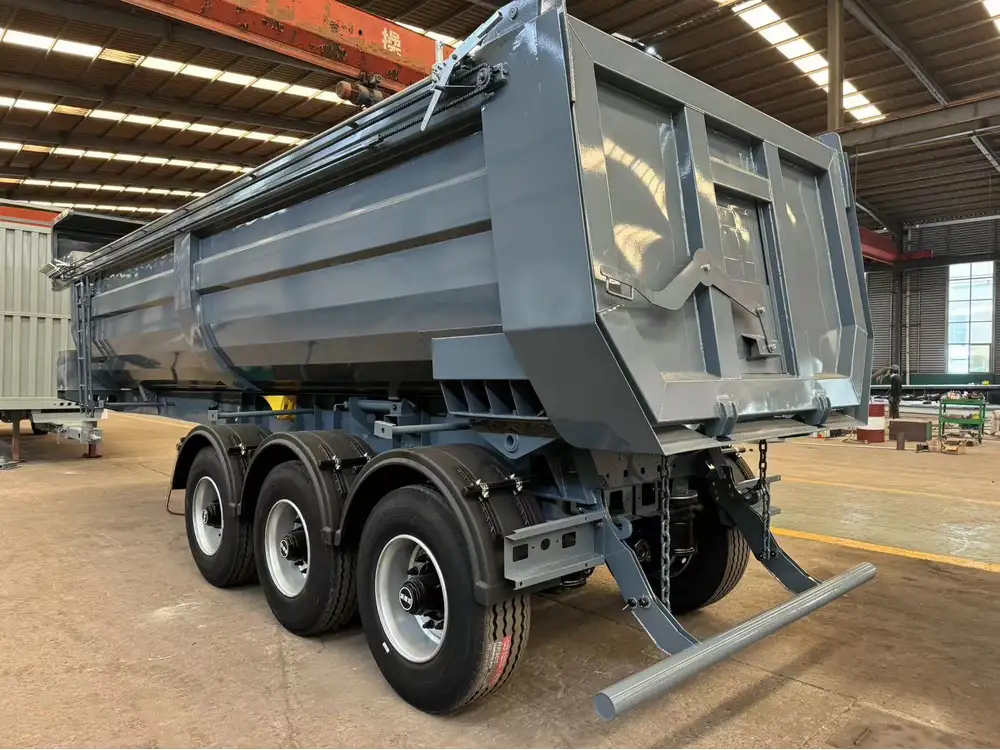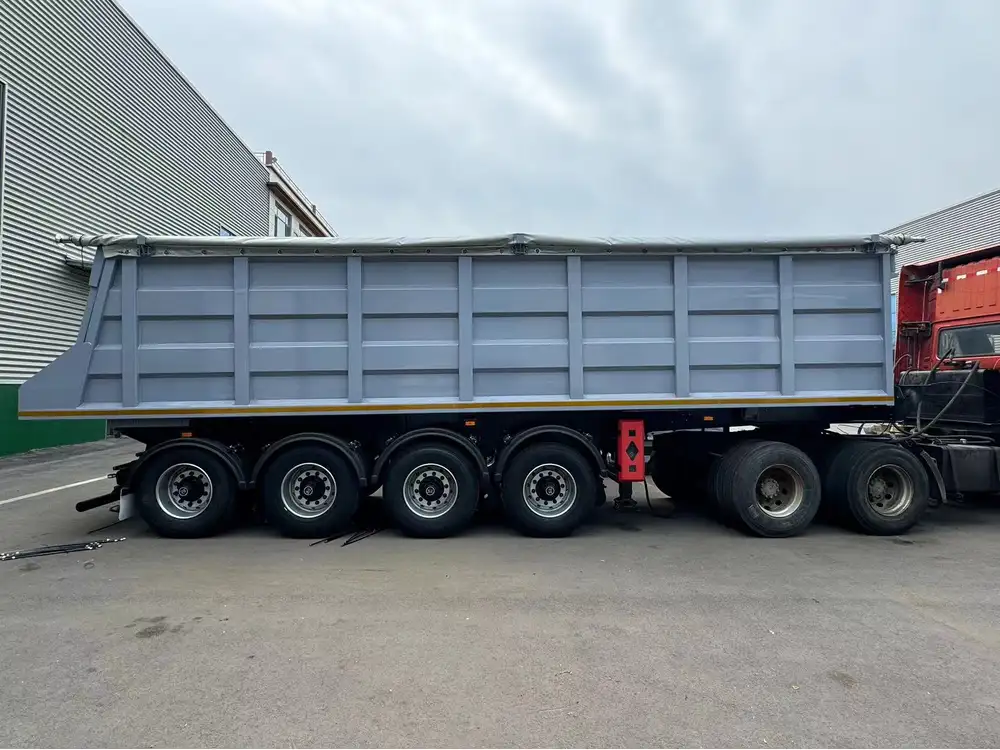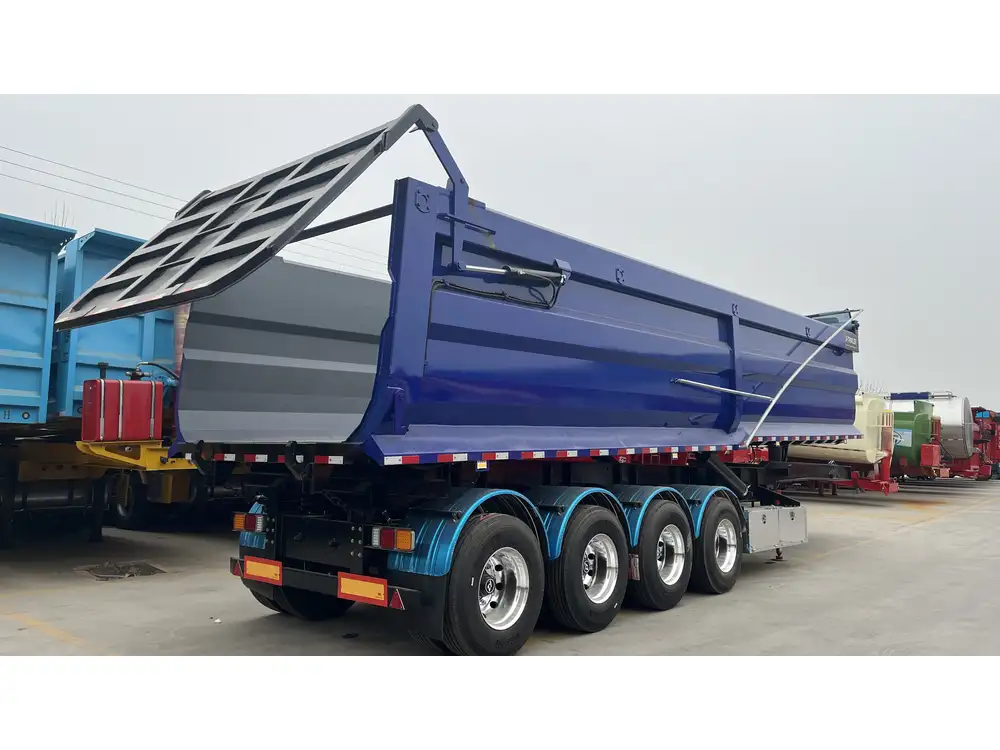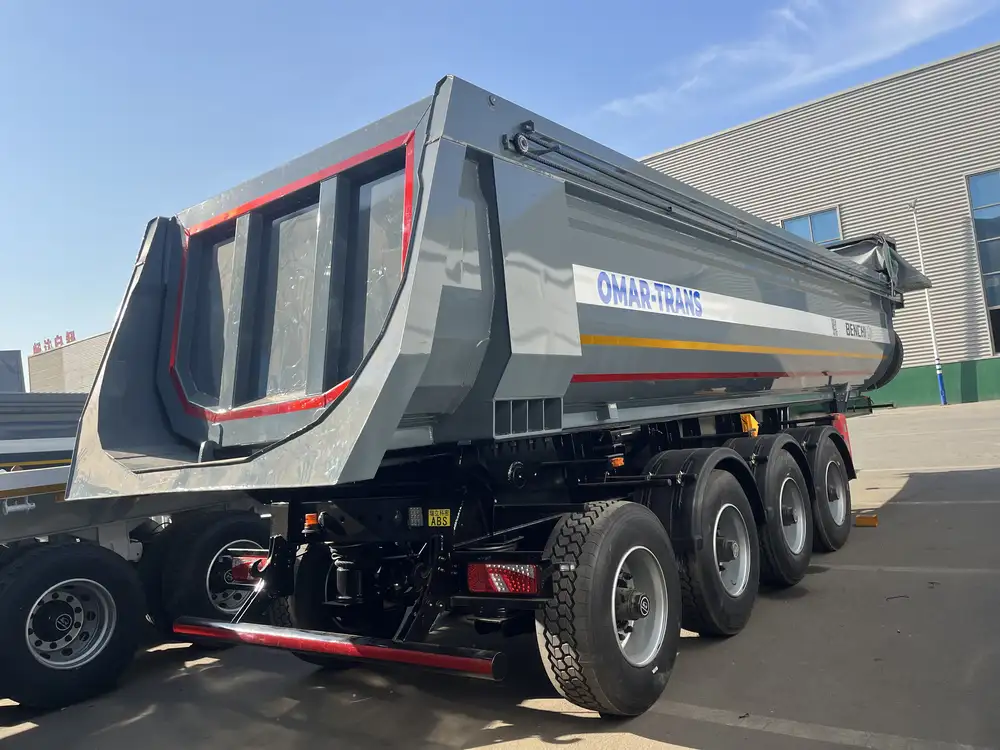The transportation industry has evolved rapidly over the last few decades. In this competitive landscape, having the right equipment can make a significant difference in efficiency and productivity, especially when it comes to trailers. Among the various choices available, dump trailers and flatbed trailers stand out as two of the most popular options. Each serves different purposes and offers unique advantages. This guide will dissect the benefits of both, helping you make an informed decision on which trailer suits your specific needs.
Understanding Your Needs: The Transport Landscape
Before diving into the comparison, it’s crucial to identify the transport demands you face.
Key Considerations for Choosing a Trailer
| Factor | Description |
|---|---|
| Load Type | What kind of materials will you be transporting? |
| Frequency of Use | How often will you utilize the trailer? |
| Terrain | What kind of terrains will you operate in (urban, rural)? |
| Weight Capacity | How much weight do you need to haul? |
Evaluating these factors will guide your decision-making process, making it clear whether a dump trailer or a flatbed trailer is right for your operations.

Dump Trailers: Features and Benefits
Definition and Functionality
Dump trailers are designed to easily unload bulk materials through a hydraulic dumping mechanism. This feature makes them exceedingly handy for construction sites, landscape operations, and agricultural settings.
Advantages of Dump Trailers
Efficient Unloading: The primary benefit of a dump trailer is its ability to offload materials quickly. The hydraulic system allows for rapid unloading, minimizing downtime.
Versatility: Dump trailers can carry a wide array of materials, including gravel, soil, construction debris, and even logs, making them ideal for multiple applications.
Robust Construction: Many dump trailers are built with heavy-duty materials that can withstand the rigors of demanding work environments.

Disadvantages of Dump Trailers
- Cost: Generally, dump trailers tend to be more expensive than flatbed trailers due to their complex hydraulic systems.
- Maintenance: The hydraulic mechanism requires regular maintenance, which could lead to additional operational costs.
Ideal Use Cases for Dump Trailers
- Construction Sites: Ideal for transporting and unloading aggregate materials such as sand, gravel, and dirt.
- Landscaping: Effective for moving soil, mulch, and other landscaping materials.
- Waste Management: Efficient at hauling waste to disposal sites owing to easy unloading features.
Flatbed Trailers: Features and Benefits

Definition and Functionality
Flatbed trailers offer a flat, open deck design that allows for diverse loading options. They are particularly effective for transporting oversized and irregularly shaped cargo.
Advantages of Flatbed Trailers
Flexibility in Loading: With no sides or roof, flatbed trailers can accommodate oversized loads, making them ideal for transporting machinery or building materials.
Versatility: Flatbed trailers can haul a variety of freight types, including construction materials, boats, and even vehicles.
Quick Loading and Unloading: The open design allows for easy access, making loading and unloading a swift and straightforward process.
Disadvantages of Flatbed Trailers
- Lack of Protection: Cargo on flatbeds is exposed to the elements, which can be an issue for sensitive cargo.
- Loading Limitations: Requires additional equipment such as forklifts or cranes for heavy items, increasing logistics complexity.

Ideal Use Cases for Flatbed Trailers
- Construction and Building: Transporting large construction materials like beams or trusses that won’t fit in a standard enclosed trailer.
- Agricultural Transport: Effective for hauling farm equipment or livestock.
- Heavy Machinery: Suitable for moving industrial machinery that requires loading from the top or side.
Comparing Cost Efficiency: Dump vs. Flatbed Trailers
Upfront Costs
| Trailer Type | Estimated Cost Range |
|---|---|
| Dump Trailers | $4,000 – $30,000 |
| Flatbed Trailers | $2,500 – $20,000 |

Operational Costs
- Fuel Efficiency: Flatbed trailers often win in fuel efficiency due to their lighter weight.
- Maintenance: Dump trailers may incur higher maintenance costs driven by their hydraulic components.
How to Determine Your Ideal Trailer
Key Questions to Ask
What materials will I be transporting?
- For bulk materials, a dump trailer is more efficient.
How often will I need to unload?
- If rapid unloading is essential, prefer a dump trailer.
Is my cargo sensitive to weather?
- Flatbed trailers leave freight exposed. Plan accordingly.
What is my budget?
- A cost analysis can be pivotal, especially for startups.

Final Considerations: Future-Proofing Your Purchase
Choosing a trailer is not merely about the present operational capacity but also the future needs of your business. When selecting between dump trailers and flatbed trailers, consider the following:
Resale Value
- Dump Trailers usually hold their value well due to their specialized function and demand in the market.
- Flatbed Trailers may depreciate faster but have a broader application that could appeal to a diverse marketplace.
Availability of Accessories
- Dump trailers can be equipped with additional features like tarping systems for better material protection.
- Flatbed trailers can have side rails or gooseneck attachments to increase their versatility.

Key Takeaway: Customizing Your Trailer Strategy
Understanding your transport needs, budget considerations, and the operational advantages of dump and flatbed trailers will guide you towards the right decision. Our dedicated team is on hand to provide additional insights and assist you in making a purchase that aligns with your operational goals.
Remember, the right trailer will not only increase your efficiency but also elevate your business practices, leading to greater profitability and customer satisfaction. Investing in either type of trailer could bolster your logistical capabilities—just ensure it aligns with your specific operational demands.
As you weigh your options, remember to consider not just your current needs, but also anticipate future demands and market fluctuations. For personalized advice on purchasing the best trailer tailored to your specifications, contact our expert team today.
By structuring your decision with care and utilizing this comprehensive analysis, you forge a strong foundation for your transportation business, ensuring long-term success and adaptability in an ever-evolving industry.



